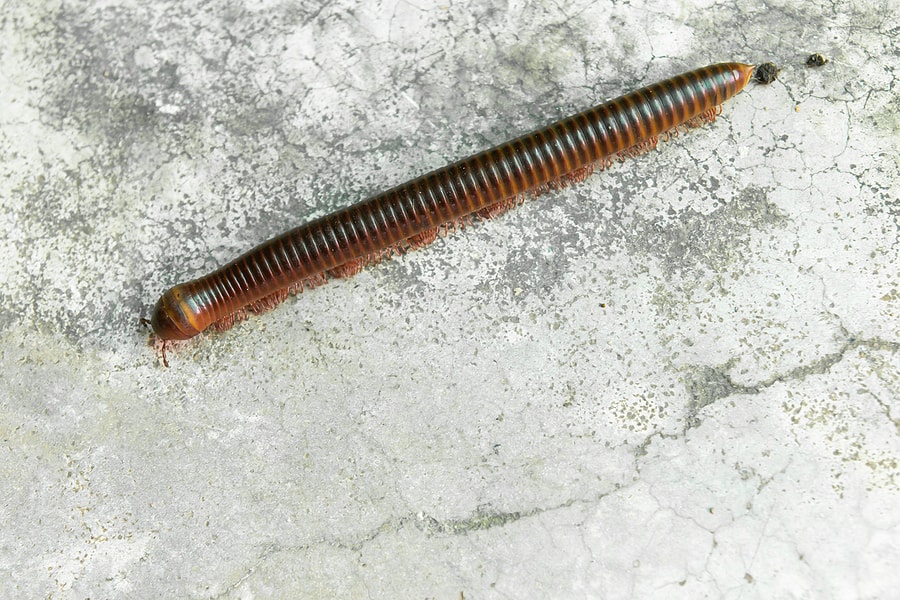READY TO GET STARTED?
REQUEST A FREE ESTIMATE
Fill out the form below or call (888) 466-7849 for a free, no-obligation estimate.

While often mistaken for each other, millipedes and centipedes are distinctly different pests. Although commonly referred to as insects, they are actually not – in fact, they are more closely related to lobsters and shrimp. Centipedes have bodies composed of many segments with one pair of legs on each segment. These long legs extend from the sides of their bodies and trail backwards behind them, making them very visible. Millipedes, on the other hand, are the opposite. These arthropods have only 1 pair of legs on their first 3 body segments but then two pairs of legs for each body segment after those. Their legs are shorter and do not trail behind their bodies like centipedes do.
Both of these land dwelling creatures prefer moist environments with high humidity. Most are nocturnal, as well. While neither carry diseases that can harm humans or pets, they can be a nuisance when they make their way into your home. Centipedes can bite, although this is rare. They do have poison glands and can cause skin irritation when a bite occurs. Millipedes feed on stems and leaves and can cause damage to gardens. They can also leave a stain if crushed. Both species can be a nuisance when they invade your home in large numbers.
Although there is no set season for millipedes and centipedes, they do come out in large numbers twice per year: in the spring when they lay eggs and in the fall when they prepare to overwinter.
Preventing centipedes and millipedes can be accomplished with these tips:
Do I Need Termite Treatments in the Winter?
Categories